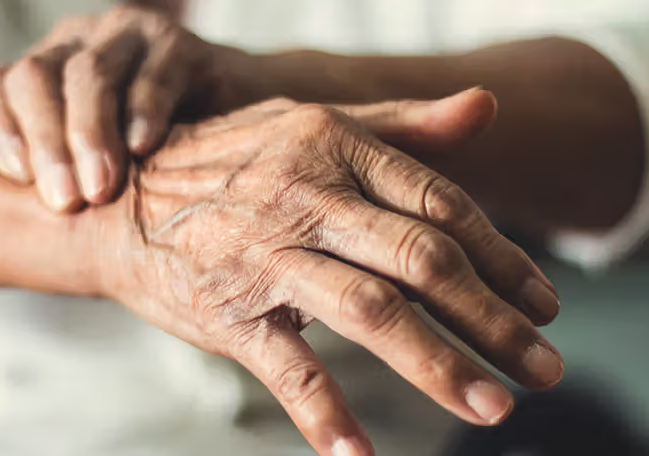Shaky hands are often associated with older adults. But many young people also experience health conditions, which significantly impact their daily lives; from simple tasks like writing to more complex activities. The involuntary shaking of hands is medically referred to as a hand tremor.
According to a study, hand tremor is common among people older than 65. However, young individuals affected by this condition often find it puzzling and concerning, as it is not widely discussed.
Without further ado, here is what you need to know about hand tremors.
What is a hand tremor?
Hand tremor is a neurological condition that causes involuntary, rhythmic muscle contractions leading to shaking movements in one or both hands.
Everyone has a slight tremor when moving or maintaining a particular posture. They are often not noticeable.
However, hand tremors get more noticeable when a person holds their hands out straight in front of the body or when they are stressed or anxious.
These movements are typically not life-threatening but can indicate underlying health issues. Tremors occur when there is a problem with the parts of the brain that control movement.
Asides from the hands, tremors occur in other body parts, such as the head, arms, legs as well as the voice box.
What causes hand tremor?
The exact cause of hand tremor is unknown. However, research suggests that hand tremor is accompanied by a mild degeneration of the cerebellum. This means the part of the brain that controls movement coordination is declining.
There are also other causes of hand tremors which include:
- Genetic factor: In more than half of the cases of hand tremor, study shows that genetics may play a role in its development. This means that children of an affected individual will have a 50% chance of also developing the disorder.
- Neurological disorders: Several neurological diseases can lead to shaky hands. Parkinson’s disease is majorly linked to hand tremors as about 75% of people with PD have tremors. Others include stroke, Traumatic brain injury, and dystonia.
- Certain medicines like antiepileptics, antivirals, and antibiotics can also play a role in the development of hand tremors.
- Alcohol misuse and withdrawal.
What are the symptoms of hand tremor?
Some common symptoms of hand tremor include:
- Rhythmic shaking of the hands.
- Difficulty with tasks requiring precision, like buttoning a shirt or writing or drawing.
- Problems holding and controlling utensils, tools, or other items.
- Handwriting may become shaky, small, or hard to read.
How is hand tremor treated?
There is no cure for most tremors, however, there are available treatment options.
These treatments are determined by the cause of your hand tremor.
- Treating underlying conditions: If the hand tremor has been confirmed to be caused by a condition, the tremor can then be treated/managed by treating it appropriately.
- Lifestyle changes: Several lifestyle changes may help to reduce hand tremors. So avoid stimulants, caffeine, and excess alcohol intake.
- Psychological techniques: People who experience tremors due to anxiety or panic attacks may benefit from practicing relaxation techniques, such as mindfulness and breathing exercises.
- Switching medications: A person who experiences tremors while taking a medication should report the side effects to their doctor. So the doctor can adjust the dosage or the drug or change the drug totally.
- Physical therapy: Exercises that can help improve muscle control and coordination can be done.
Copyright 2024 TheCable. All rights reserved. This material, and other digital content on this website, may not be reproduced, published, broadcast, rewritten or redistributed in whole or in part without prior express written permission from TheCable.
Follow us on twitter @Thecablestyle

